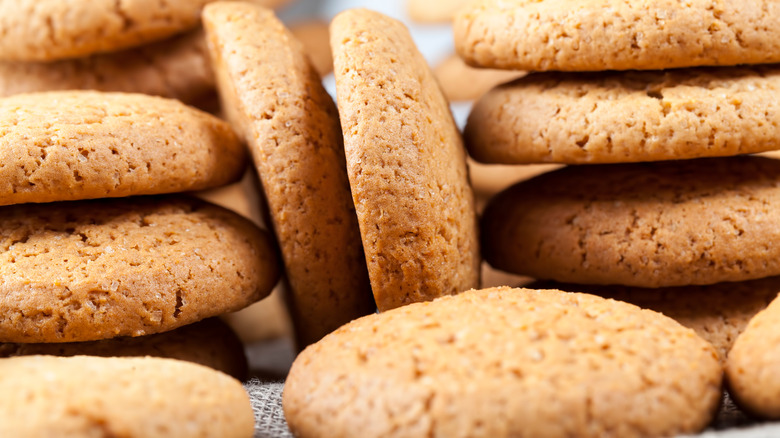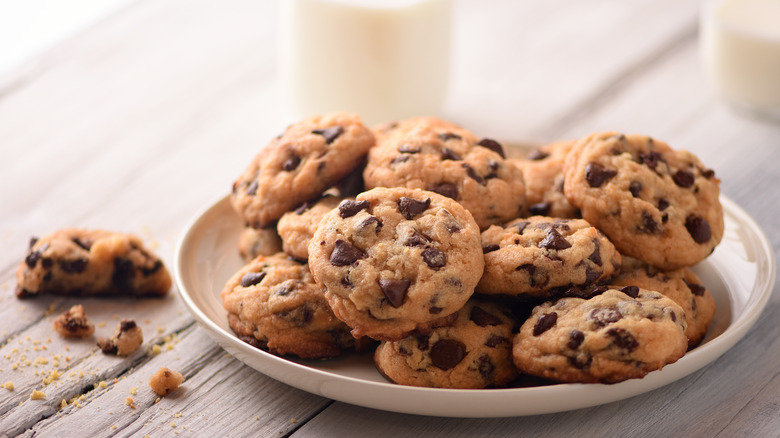The Real Reason Your Cookies Are Rock Hard
Sinking your teeth into home-baked chocolate chip cookies shouldn't trigger a dental visit. And Snickerdoodles that double as hockey pucks aren't exactly what you want to pull out of your cookie jar. The good news is, there's an actual reason why your cookies are rock hard, and knowing why along with a few easy baking rules will ensure it never happens again.
Unlike whipping up a skillet dinner with a pinch of this and a handful of that, baking requires precise measurements for successful outcomes. Yuppie Chef explains that baking is a science, and common cookie mishaps often stem from ingredient inaccuracies. If your cookies are rock hard, the site explains that it's likely due to an over-abundance of sugar, which hardens, darkens, and flattens the cookies as they bake.
Bake or Break adds that over-mixing your dough can be the culprit, too. When flour is blended with other ingredients, gluten starts to form. Too much gluten yields tough cookies. To prevent over-mixing, stop blending ingredients as soon as the streaks of flour are no longer visible (via The Kitchn).
The Spruce Eats agrees and states that the type of flour matters too – most cookie recipes call for all-purpose flour and if you substitute bread flour (made with a different strain of wheat), you'll likely end up with rigid rounds, not chewy circles.
How to salvage those rock hard cookies
But, if you're reading this after your batch has finished baking, and you have unbreakable cookies on your hands — don't fret, it might be possible to salvage your treats.
Good Housekeeping suggests adding a slice of fresh bread to your cookie storage container to bring them back to life as the cookies will suck the moisture from the bread and become soft. Since the bread will dry out as a result, add a fresh bread slice every other day as needed. Taste of Home agrees and suggests using fresh white or wheat sandwich bread because breads with seasonings and other ingredients (like rye and garlic bread) will perfume the cookies in your stash — and not necessarily with intended flavors. Greatist also suggests using an airtight container or zip-top bag to slow down moisture loss and keep cookies fresh for more than a week.
While it may seem like a tedious task, Insanely Good Recipes recommends wrapping each cookie, individually, in plastic wrap as soon as it comes out of the oven — especially if you over-cooked them or over-mixed the batter. The heat from the warm cookie inside the plastic will create steam and keep the cookies moist.
If you've tried all of the above and your cookies are still too hard to consume without fear of chipping a tooth, Spoon University shares several creative ways to enjoy them, from puréed cookie milkshakes, to sweet cookie pie crusts, cookie chocolate bark, cookie-laced brownies, and homemade cookie butter.

